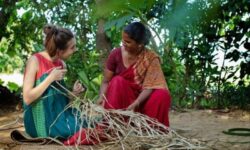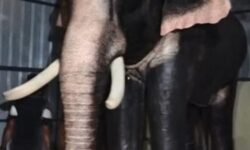
THIRUVANANTHAPURAM:
Kerala’s handling of the COVID-19 crisis, which earned the state, global plaudits for real flattening of the curve with lower mortality, will be an absorbing topic for discussion at an upcoming international webinar series on UN’s Sustainable Development Goals (SDGs).
The first case in Kerala was reported on January 30 last year, and the government got into action straightaway by setting up a lab for COVID tests on February 2 — the first laboratory to be approved by ICMR for COVID-19 testing in India. The state has now 29 dedicated hospitals and 2,230 labs/institutions, both government and private, registered for COVID testing. The testing strategy was expanded to the community through sentinel surveillance using RT-PCR to detect any local or community spread. This strategy is unique to Kerala as no other state or country has implemented sentinel surveillance using RT-PCR for COVID-19. ‘Walk in Sample Kiosk’ (WISK), STEP (Screening, Testing, Education and Prevention) Kiosks, ‘Mobile Unit for Sample Collection’ gave this strategy a cutting edge.
“Using the five components of trace, quarantine, test, isolate and treat, Kerala has flattened the curve and maintained the COVID-induced fatality rate at 0.4 per cent. This is despite having high density of population, huge proportion of elderly, a high prevalence of cardiovascular and non-communicable diseases (NCDs) and large inflow from other countries,” said state Health and Family Welfare Minister K K Shailaja.
Chief Minister Pinarayi Vijayan will inaugurate the webinar series, titled ‘Kerala Health: Making the SDG a Reality’. Organised by the state’s Department of Health and Family Welfare, with the knowledge partners WHO, UNICEF and World Bank. The event is staggered over five days across this month and early March. The five sessions are to be held on February 17, 18, 24, 25 and March 5, each session discussing progress in specific components of health-related sustainable development goals in Kerala.
The key components of pandemic prevention and control included a robust surveillance system with rigorous contact tracing; good quality quarantine; testing all eligible individuals, ensuring community participation in the fight against the pandemic; providing high-quality, standardized medical care for the affected persons in designated hospitals besides ensuring uninterrupted treatment services to the non-COVID patients, elderly people and pregnant women. Tele-consultation facilities were set up and medicines delivered at the doorstep to elderly individuals from the primary health centres.
“The pandemic has made it imperative for us to ramp up investments in public health and improve infrastructure capacities to detect a disease early and respond rapidly and decisively to emerging infections. We can’t afford to slacken our efforts because epidemics and pandemics will continue to challenge public health into the future also,” she added.
The successful execution of strategies was, however, made possible by robust local self- government and grassroots structures, public health approach, community ownership, and inter-sectoral coordination from top to village level.
Another significant component of the multi-pronged strategy was social mobilization through ‘Break the Chain’ campaign, focusing on behavioural change through physical distancing, hand-washing and using face masks. Now followed up by ‘Back to the Basics’ campaign.
Through a coordinated and scientific response, the number of cases were always held below the surge capacity of the health system. The transmission is well contained as evidenced by the ICMR sero prevalence survey reports. While most of the countries reported excess deaths during the pandemic year, Kerala reported a reduction in all-cause mortality.




